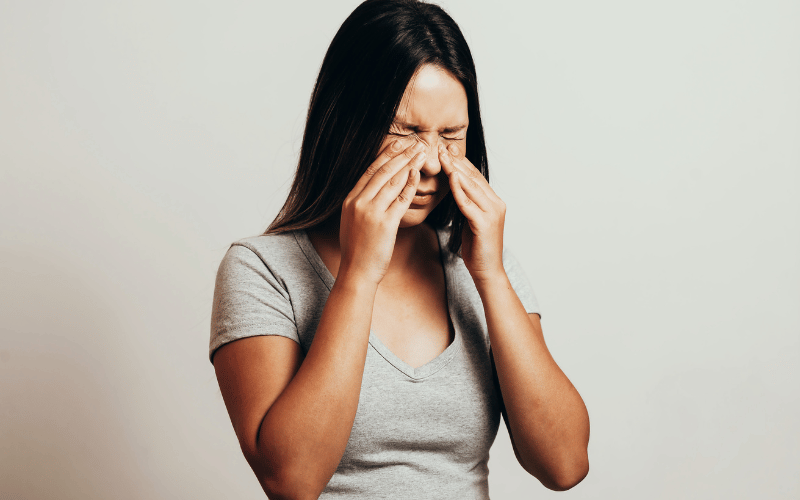Symptom 6: Sinus Pressure and Pain

Sinus pressure and pain are common symptoms in individuals with vasomotor rhinitis (VMR), often causing significant discomfort. This symptom is characterized by a feeling of pressure or fullness in the sinus areas, which can lead to headaches, facial pain, and discomfort around the eyes, cheeks, and forehead. Unlike sinusitis, where pain is often due to an infection, VMR-related sinus pain is typically a result of prolonged nasal congestion and the resultant pressure in the sinus cavities.
Differentiating sinus pressure and pain caused by VMR from other potential causes, such as sinus infections or allergic rhinitis, is critical for effective treatment. In VMR, sinus pain is not usually accompanied by the fever or greenish nasal discharge often seen in sinus infections. Additionally, the pain and pressure tend to fluctuate with changes in environmental factors, such as weather or exposure to irritants, which is less common in sinus infections or allergic rhinitis.
The impact of sinus pressure and pain on daily activities can be profound. The discomfort can disrupt concentration, reduce productivity, and interfere with sleep. In severe cases, it can lead to absenteeism from work or school and can significantly diminish an individual’s ability to participate in leisure activities or social engagements.
Management of sinus pressure and pain in VMR typically involves addressing the underlying nasal congestion and inflammation. Nasal decongestants, antihistamines, and nasal corticosteroids can be effective in reducing nasal swelling and alleviating sinus pressure. Additionally, using a humidifier, applying warm compresses to the face, and practicing nasal irrigation can provide symptomatic relief. Avoiding known triggers, such as strong odors or pollutants, is also important in managing this symptom.
Due to the potential for sinus pressure and pain to be mistaken for other conditions, it is crucial for individuals experiencing these symptoms to seek professional medical advice. A healthcare provider can perform a thorough evaluation to confirm the diagnosis of VMR and recommend an appropriate treatment plan. This professional guidance is essential in effectively managing the symptom and improving overall quality of life. (6)